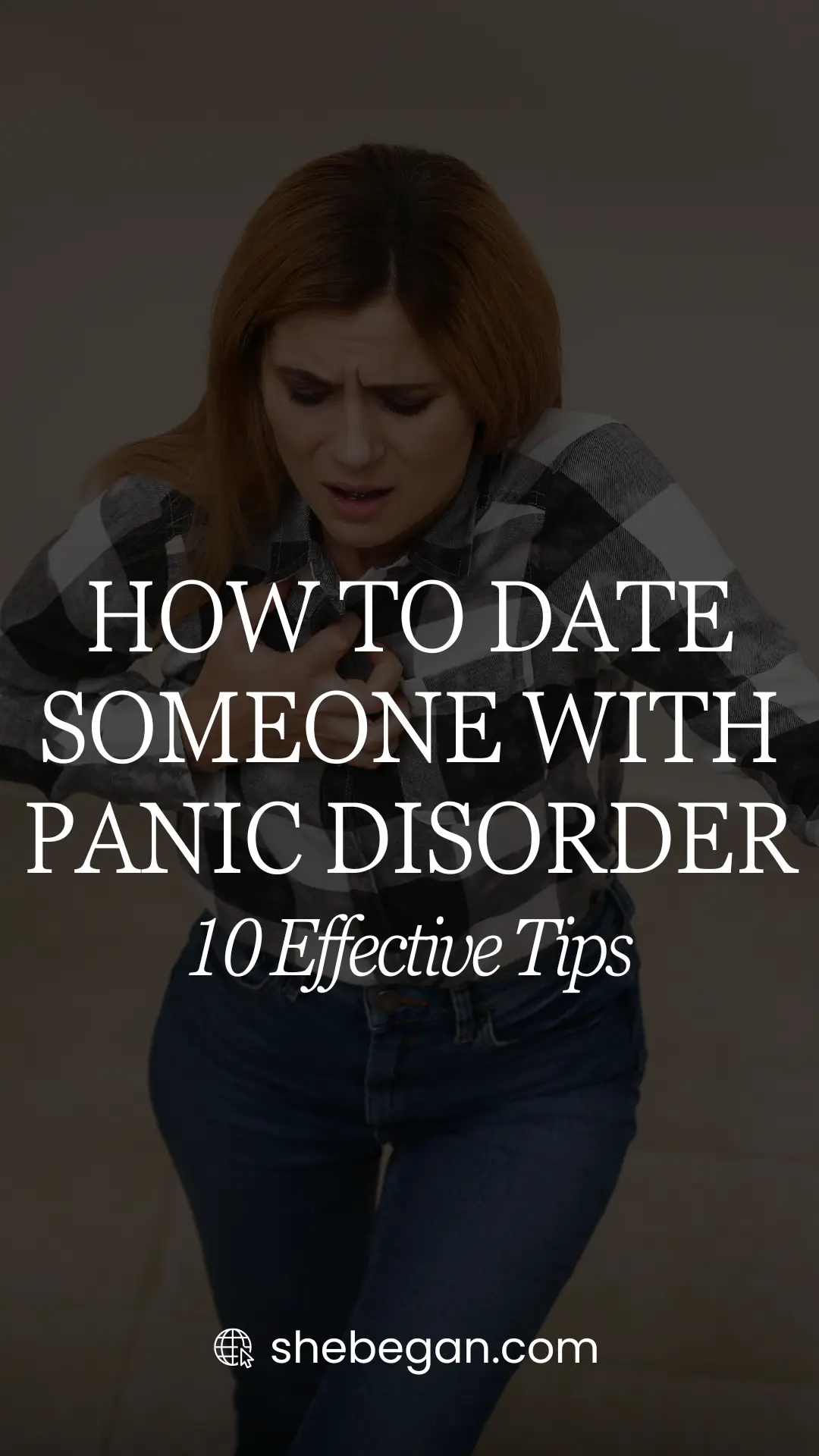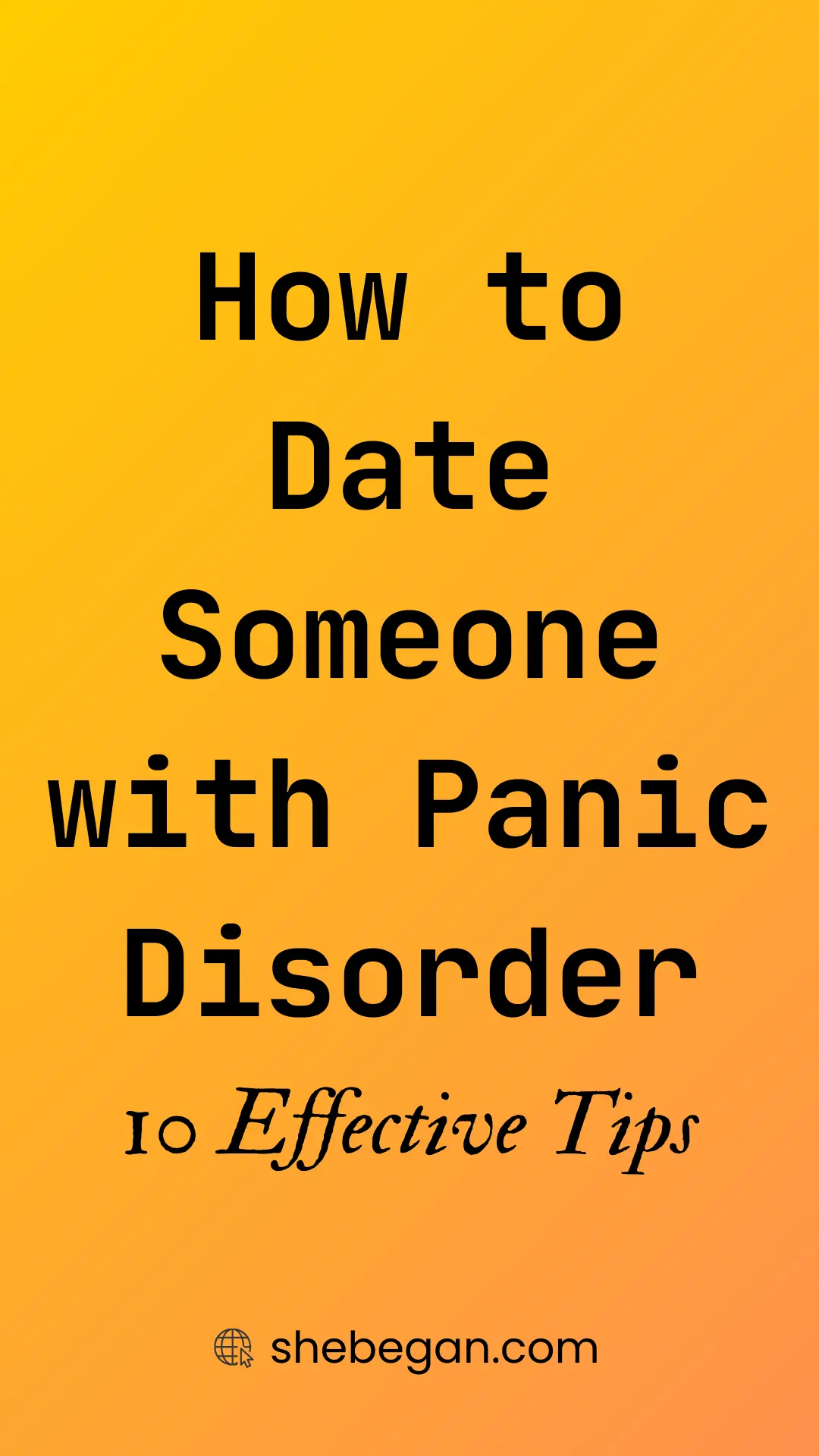Dating someone with a panic disorder can be a unique challenge. However, it also offers an opportunity for deep understanding and compassion. When you’re in a relationship with someone who experiences panic attacks, you need to understand how to properly date someone with panic disorder.
In this blog post, I will share tips on how to effectively date a partner with panic disorder without stress.

Dating a Person with Panic Disorder
To effectively support someone with panic disorder, first of all to understand the condition. Panic disorder is a type of anxiety disorder that affects approximately 2-3% of the population (source).
It is characterized by the sudden onset of intense fear or discomfort, often accompanied by physical symptoms such as heart palpitations, sweating, and shortness of breath.
Panic attacks can occur unexpectedly, and people with panic disorder often experience anxiety and fear about the possibility of having another attack.
Tips to Date Someone with Panic Disorder

Dating someone with panic disorder can be a challenging experience, but it’s also an opportunity to build a strong, compassionate relationship. Below are how to understand and support a partner with panic disorder:
1. Understand their experience
Panic disorder is more than just feeling anxious. It involves intense, often overwhelming episodes of fear that can strike unexpectedly. Understanding the nature of these panic attacks is crucial. They’re not just ‘nervousness’ – they’re complex, deeply psychological experiences that your partner may not have full control over.
2. Managing unexpected situations well
Panic attacks can be unpredictable, occurring even in seemingly calm or familiar situations. This unpredictability can make planning dates or outings challenging. Flexibility and a willingness to adapt plans are key.
3. Communicating with them effectively
Open and honest communication is vital. Talk about what triggers your partner’s panic attacks and what they need from you during an episode. However, remember that these conversations should be approached with sensitivity and at a time when your partner feels comfortable.
4. Provide support during panic attacks
Knowing how to support your partner during a panic attack is essential. This might involve offering physical presence, helping them with breathing exercises, or providing reassurance. However, respect their space and needs, as some individuals may prefer to be alone during an episode.
5. Balancing care with independence
It’s easy to fall into a caretaker role, but this can be overwhelming for both you and your partner. Encourage independence and empower your partner to manage their condition, supporting them without taking over.
6. Dealing with public misunderstandings
Public understanding of mental health issues, including panic disorder, is growing but still limited. You may find yourselves facing misconceptions or stigma from others, which requires patience and sometimes, a readiness to educate those around you.
7. Take care of your own mental health too
Watching someone you care about experience a panic attack can be distressing. It’s important to take care of your own mental health and seek support if needed.
8. Get your partner a therapist
If your partner isn’t already seeking professional help for their panic disorder, encouraging them to do so can be a delicate but crucial step. Professional treatment, such as therapy and medication, can significantly improve their quality of life.
9. Build trust and patience
Relationships thrive on trust and patience, and this is even more important when one partner has a panic disorder. Building a trusting relationship where your partner feels safe and understood can take time but is incredibly rewarding.
10. Celebrating each progress
Recognize and celebrate the small victories and progress your partner makes in managing their panic disorder. This can foster a positive environment and encourage further growth.
Can panic disorder be cured?
While panic disorder cannot be cured, it can be effectively managed with the right treatment and support.
Can panic attacks be prevented?
While panic attacks cannot always be prevented, certain triggers can be avoided or managed to reduce the risk.
How can I help my partner during a panic attack?
During a panic attack, it is important to remain calm and offer reassurance. Encourage your partner to focus on their breathing and use grounding techniques, such as counting or focusing on their senses.
Should I avoid social activities if my partner has panic disorder?
While it is important to be sensitive to your partner's needs, it is also important to maintain your own social life and engage in activities that you enjoy. Finding a balance that works for both partners is key.
How can I encourage my partner to seek treatment for panic disorder?
Encourage your partner to speak with a mental health professional and offer to help them find a therapist or doctor. It is important to be supportive and non-judgmental, while also emphasizing the benefits of seeking treatment.
Conclusion
Dating someone with panic disorder can be challenging, but it is also an opportunity to build a supportive and fulfilling relationship.
By understanding the condition, being patient and understanding, and offering practical support, you can help your partner manage their symptoms and navigate the relationship.
Remember to prioritize open communication, flexibility, and self-care, and celebrate your partner’s successes along the way.
Further Reading
Panic Attacks & Panic Disorder
https://my.clevelandclinic.org/health/diseases/4451-panic-attack-panic-disorder
Tips for Dating Someone With Panic Disorder
https://www.verywellmind.com/dating-someone-with-panic-disorder-2583949
17 Tips for Dating Someone With Anxiety
https://www.choosingtherapy.com/dating-someone-with-anxiety/





